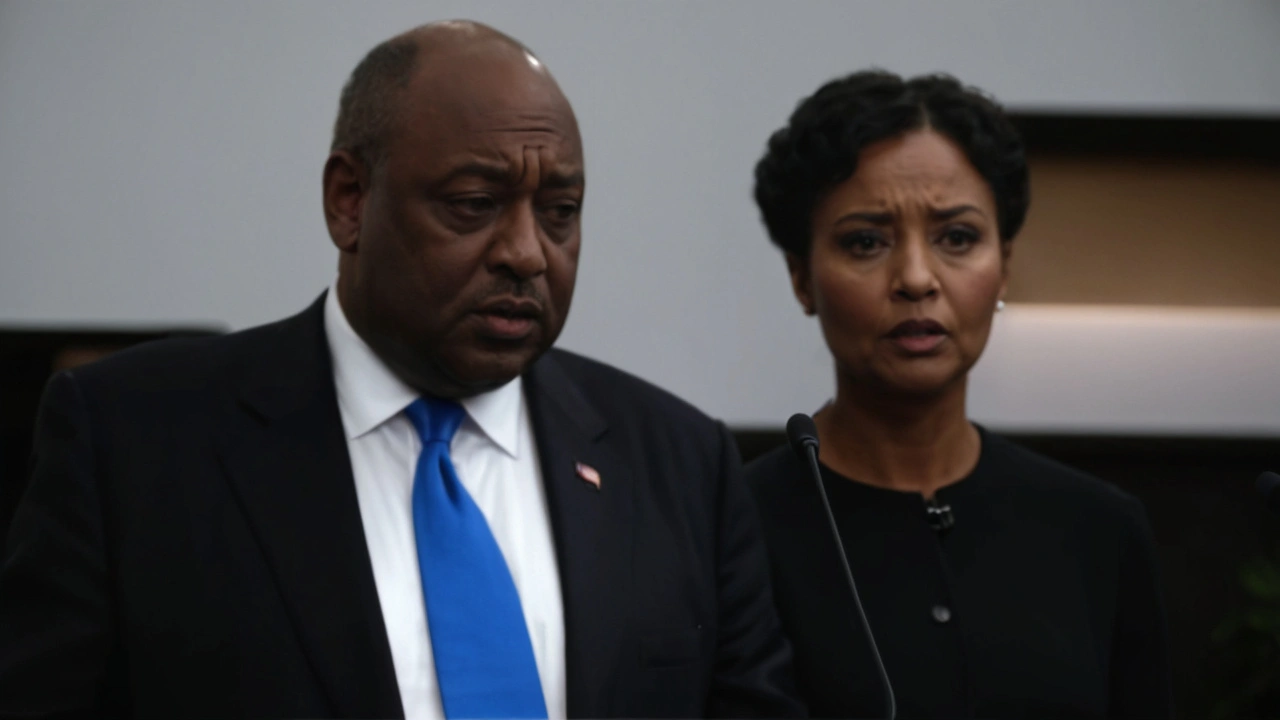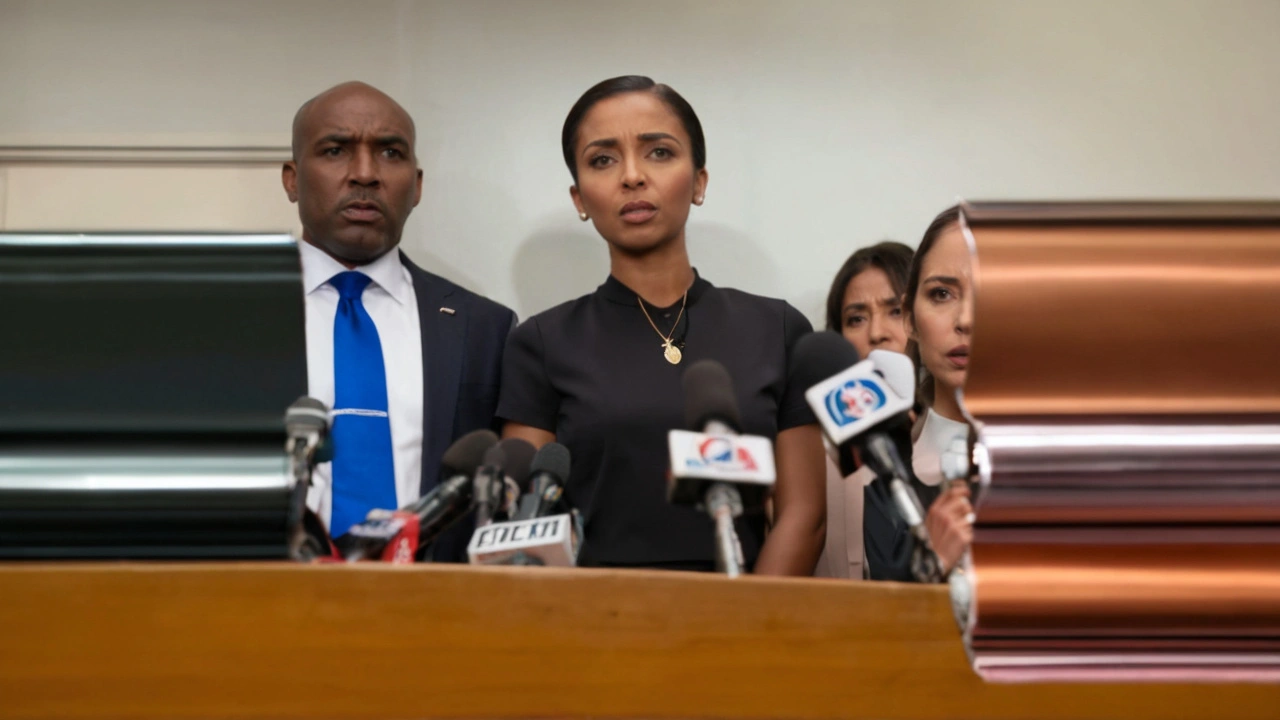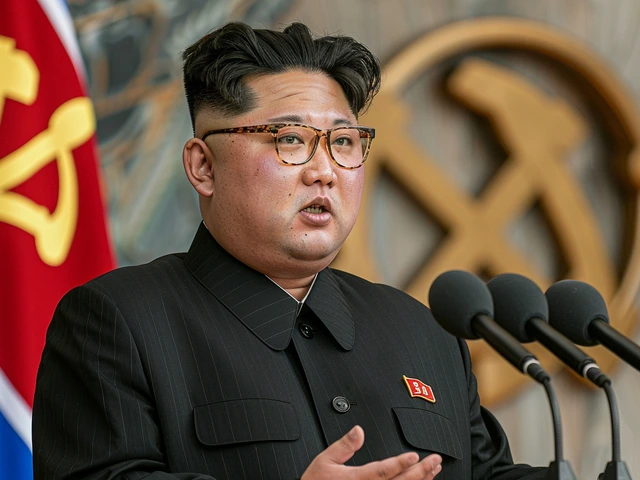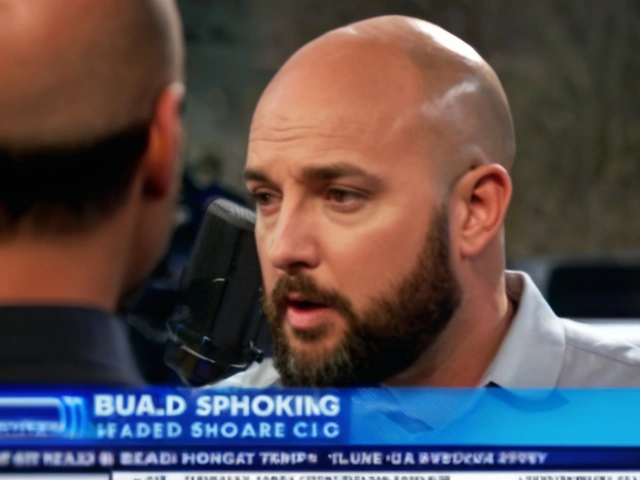The Tragic Incident: Sonya Massey's Fatal Encounter
Sonya Massey, a 36-year-old mother of two from Springfield, Illinois, faced a tragic fate when she called 911 for protection against a suspected intruder. The call, intended to ensure her safety, instead led to her untimely death. Former deputy Sean Grayson, who arrived on the scene, is now at the epicenter of a legal and moral maelstrom, charged with three counts of first-degree murder, among other serious offenses. The unfolding of this incident provides a stark reminder of the volatility and complexity surrounding interactions between civilians and law enforcement.
Grayson, 30, has pleaded not guilty to all the charges, including official misconduct and aggravated battery with a firearm. As the legal proceedings continue, the community and the entire nation grapple with the implications of this 'senseless murder,' a term echoed by Vice President Kamala Harris in her condemnation of the act. Harris' statement aims to spotlight the gravity of the issue and the urgent need for systemic change.
Body Camera Footage: A Key Piece of Evidence
The Illinois State Police have released 36 minutes of body camera footage that paints a grim picture of the events leading up to Massey's death. The footage reveals the officers' initial inspection of Massey's property, including a vehicle with a shattered window, raising the tension and sense of urgency. Upon entering Massey's home, the interaction quickly escalated.
In the midst of their inspection, Grayson instructed Massey to turn off her stove, a command that led to a confrontation. What began as an argument between Massey and the officer ended catastrophically with Grayson's fatal shooting of Massey. This footage not only documents the final moments of Massey's life but also serves as a stark reminder of the potential for ordinary police encounters to spiral out of control.
National Outrage and Calls for Justice
The incident has sparked widespread outrage and drawn comparisons to other high-profile cases involving fatal police encounters with Black women, such as Breonna Taylor and Atatiana Jefferson. Vice President Kamala Harris wasn't alone in her condemnation. President Joe Biden, too, articulated a powerful message, emphasizing that Massey sought protection but instead faced fatal violence. Their statements underscore a growing consensus that this should never happen again, igniting further calls for policy changes and accountability.
Illinois Governor J.B. Pritzker also voiced his dismay, stating that Massey deserved protection but was instead subjected to lethal force. His sentiments resonate with many who see this tragedy not as an isolated incident but as part of a broader pattern demanding urgent redress. The calls for justice are amplified by the persistent demands for comprehensive police reform, specifically the passage of the George Floyd Policing Act, aimed at addressing systemic issues within law enforcement.

The Legal Battle Ahead
As Grayson faces trial, the legal community and the public closely watch the proceedings, understanding that the outcome holds significant ramifications for the future of policing in America. The charges of first-degree murder against Grayson present a daunting legal battle for both prosecution and defense. The complexity of the case is evident, with layers of legal, ethical, and social factors at play.
The court's decisions in the coming months will not only impact Grayson's future but also set precedents for how similar cases may be handled. The legality of Grayson's actions, the procedural conduct of the responding officers, and the broader implications for law enforcement practices are all under intense scrutiny. This legal battle serves as a pivotal moment in the ongoing discourse about police accountability.
Community Reactions and the Path Forward
The Springfield community has been vocal in its demands for justice for Sonya Massey. Vigils, protests, and community meetings have become a common sight, with residents expressing their grief, anger, and resolve. The incident has galvanized a collective call for change, empowering grassroots movements and advocacy groups to push for reforms that ensure such tragedies do not recur.
The discourse has extended beyond Springfield, with national and international media coverage echoing the outrage and calls for systemic change. Advocacy for the George Floyd Policing Act has gained renewed momentum, with supporters arguing that legislative reforms are crucial to preventing future incidents. As the community mourns, it also mobilizes, turning grief into action and demanding accountability from those in power.
The Larger Conversation on Police Reform
Sonya Massey's death has added to the already intense debate surrounding police reform in the United States. For years, activists and policymakers have been advocating for comprehensive changes in how law enforcement operates, including better training, accountability measures, and shifts in policing culture. The tragedy has reinforced the notion that profound changes are not just necessary but urgent.
The conversation includes diverse perspectives, from those calling for defunding the police to others advocating for more stringent oversight and better community policing strategies. The complexity of the issue is evident in the myriad of proposed solutions, each aiming to address different facets of the problem. However, the common thread remains clear: the need to ensure that policing serves to protect all members of society equitably.

Conclusion: A Call to Action
The shooting of Sonya Massey is a stark reminder of the work yet to be done in achieving a just and equitable society. It underscores the urgent need for systemic reforms in law enforcement and the broader criminal justice system. As the nation mourns her loss, it also must commit to fostering a society where such tragedies cease to exist.
Vice President Harris, President Biden, Governor Pritzker, and countless others have spoken out, but real change will require sustained efforts at every level of governance and within every community. The path forward involves listening to impacted communities, implementing meaningful reforms, and ensuring that no one else has to endure what Sonya Massey and her family have suffered. In honoring her memory, the fight for justice and equity must continue earnestly and relentlessly.






